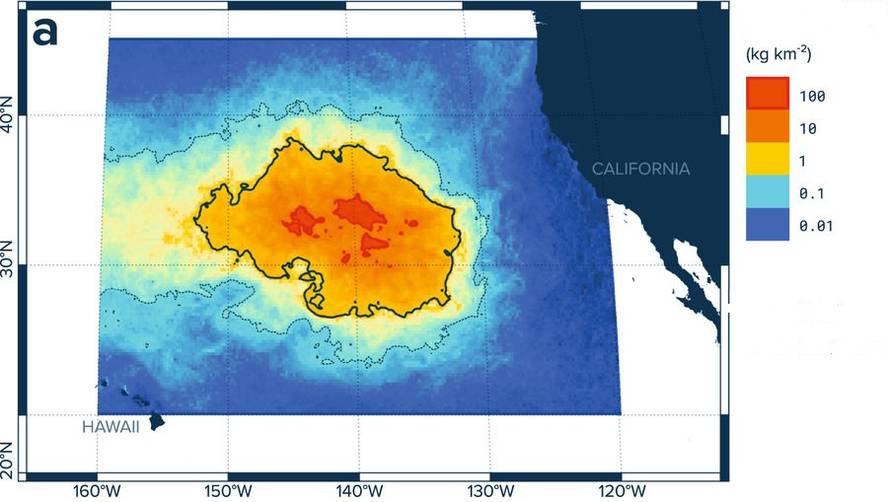Pacific Plastic Island: Getting Bigger, Faster
According to the latest study, the set of plastics accumulated in the Pacific, between California and Hawaii, is even greater than they thought. Specifically, it occupies an area of 1.6 million km2, which is 76 times more than the Basque Country. In addition, researchers warn that it is growing exponentially.
The research has been led by the Ocean Cleanup Foundation. For data collection 30 vessels and two planes have been used. The ships collected 1.2 million samples and the planes scanned 300 km2 to obtain multispectral and 3D images. With this data, and through models, they have known not only the surface but also the characteristics, density and other aspects of plastics stored on the island.
The results have been published in the journal Scientific Reports. It has been explained that there is an average of 10 kg of plastic per km2 and that 92% of the mass is formed by large plastics. This result has surprised researchers, who considered that it was mostly composed of microplastics.
The Ocean Cleanup Foundation continues to investigate. Among other things, a collection system of large plastics is being developed for disposal before becoming microplastics, since microplastics are more dangerous for ocean life than large ones. In addition, among other things, they want to know the amount of plastics under the surface of the water and know where the plastic waste moves and how it accumulates.






